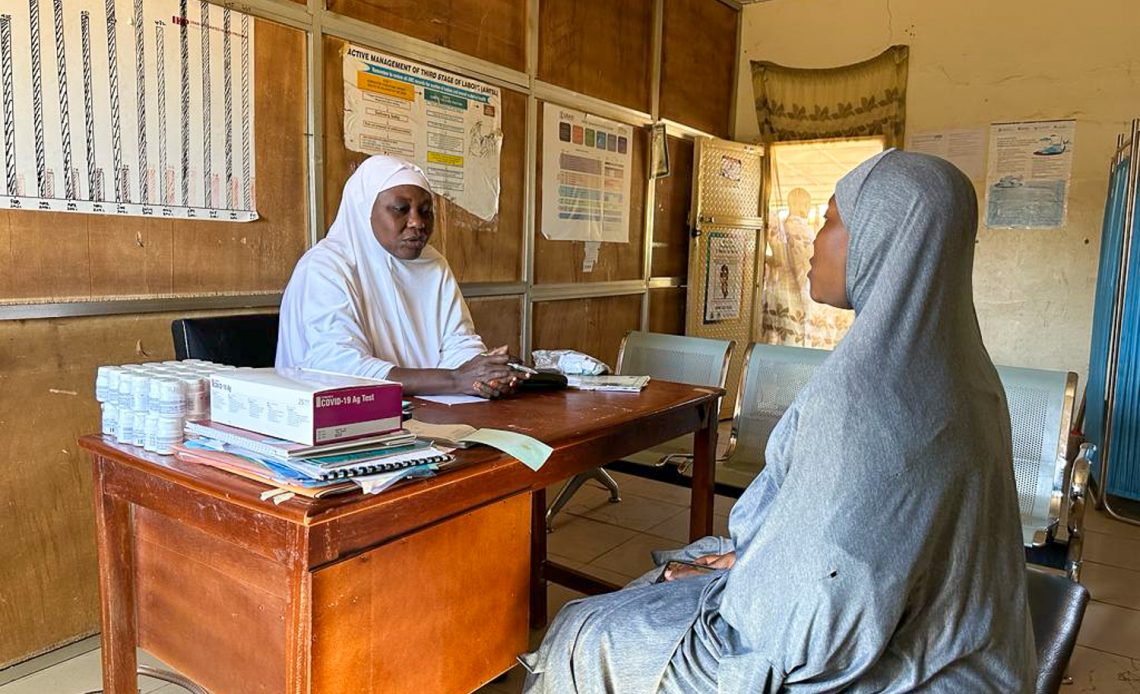Hadiza Mohammed and Chibuike Alagboso (Lead Writers)
It is 10 am on a Wednesday, and around 30 pregnant women are attending the antenatal clinic (ANC) at Gagi Primary Health Centre (PHC) in Sokoto South Local Government Area (LGA) in Sokoto State. Aishatu Mohammed Bello, the head of the ANC unit speaks to the pregnant mothers about the various aspects of their pregnancy, including eating a healthy diet. She concludes with a brief but boisterous singing session, leading the women to sing in the Hausa language, about the signs and symptoms of labour. Following that, the women begin individual consultations.
Nafisa Usman, a community member, said she never misses antenatal classes. “This is my first pregnancy. The reason I don’t miss antenatal sessions is that I get all the information I need for my health and my baby’s health in this clinic, including what I am supposed to eat and not to eat, labour signs, and other things”.
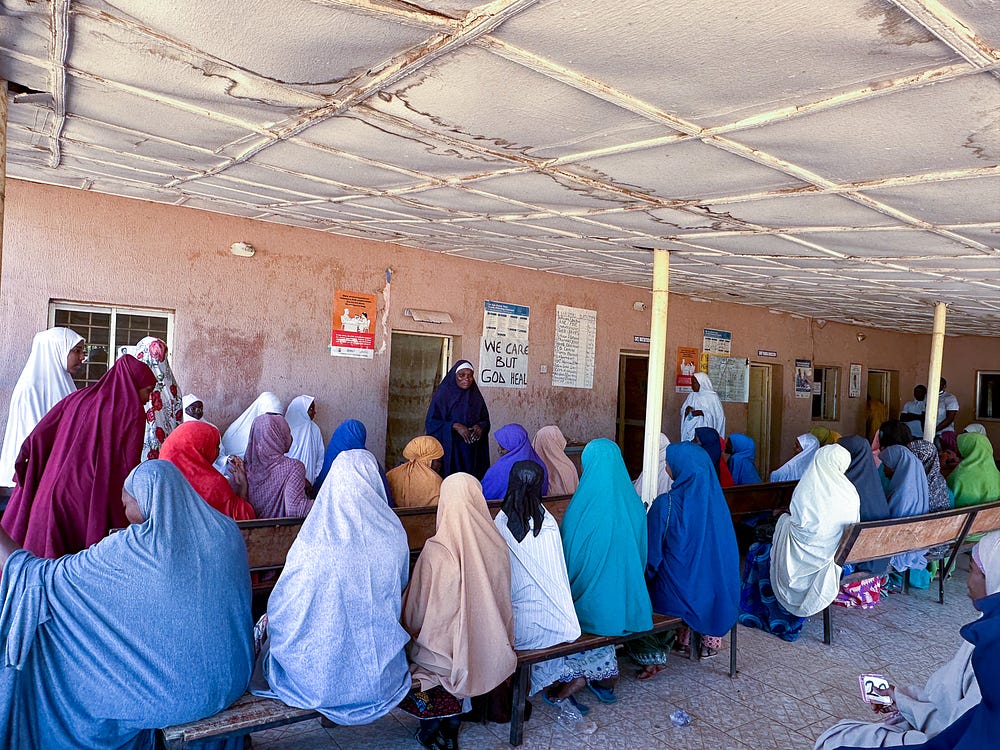
A problem before delivery
Nearly half of all deaths in children under five are nutrition related. According to the United Nations Children Fund (UNICEF), 7.9% of infants between the ages of six and 59 months suffer from severe malnutrition, with Sokoto State having the highest prevalence of malnutrition in Nigeria.
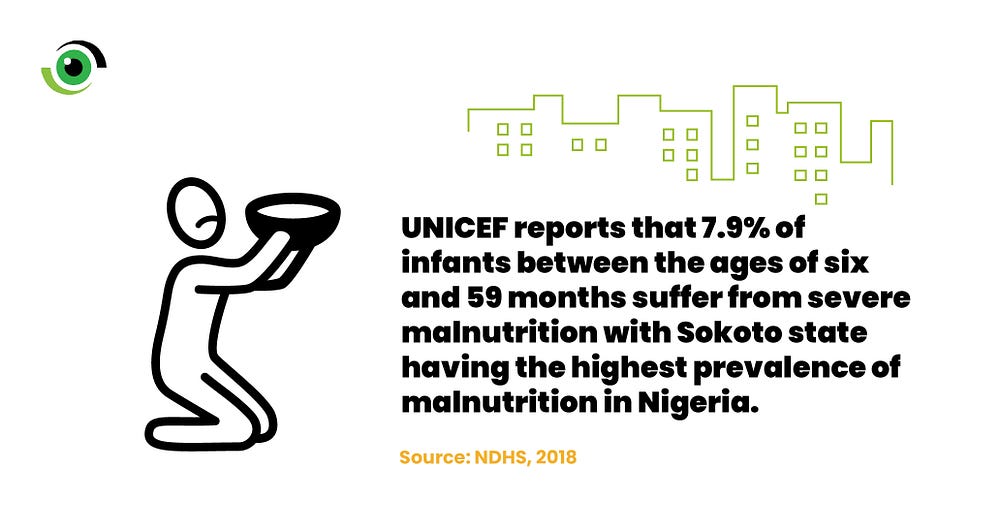
However, the problem begins before the child is born because poor maternal nutrition has an adverse affect on the growth and development of the baby during gestation and postnatal.
Nurturing the nurturer
Save the Child Initiative (STCI), in collaboration with the Society for Women Development and Empowerment in Nigeria (SWODEN), is assisting in ensuring that mothers are well-nourished during pregnancy so that they can deliver healthy babies. They are doing this through a programme called Enhancing Maternal Nutrition in Northern Nigeria with Iron and Folic Acid (IFA) Supplementation and Nutrition Counseling. The programme is being funded with financial support from Nutrition International.
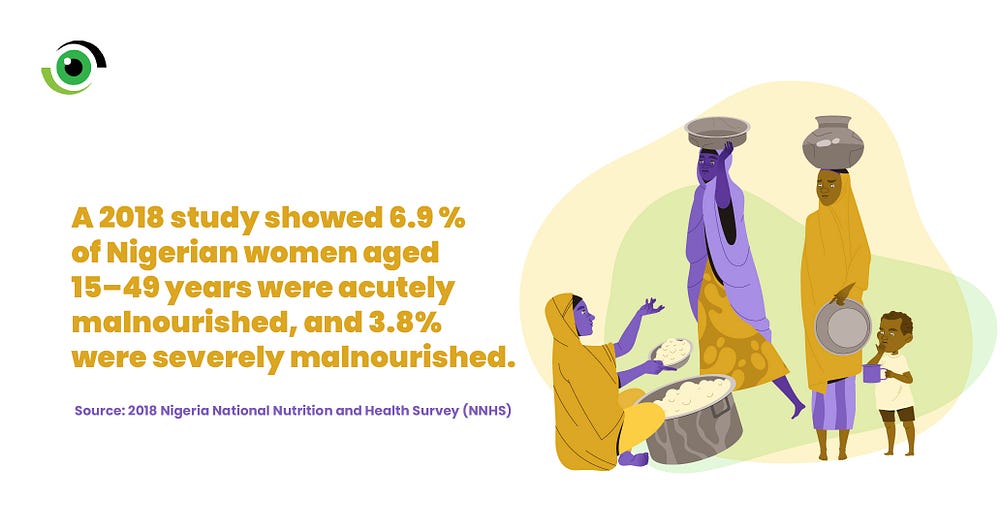
Beginning in 2022, they worked in Sokoto South, Bodinga and Gwadabawa LGAs in Sokoto State to enhance the delivery of high-quality ANC services, including IFA supplementation and nutrition counselling to pregnant women.
In northern Nigeria, spouses and other family members influence the welfare of women, especially access to quality healthcare. As a result, the programme’s goal was to raise awareness and knowledge about ANC services, iron and folic acid consumption, and nutrient-rich foods high in iron among women and their influencers in the target states.
The first phase of the programme lasted for six months, and the main goal was to increase awareness among pregnant women about the importance of attending at least four antenatal visits during the early stages of pregnancy. This is due to the fact that pregnant women can receive crucial, life-saving information during these visits, such as the importancee of iron and folic acid supplementation, which they can easily access during their appointments.
The two organisations shared responsibility for ensuring the seamless delivery of project activities. While STCI focused on sensitisation and mobilising community influencers to encourage women to attend ANC, SWODEN helped to provide the IFA nutritional supplements and training health workers to administer them effectively.
Their sensitisation efforts also helped dispel myths and misconceptions that some community members had about women taking iron and folic acid during pregnancy. “Some of them believed that taking these supplements will make it very difficult for a woman to deliver as the child will grow bigger,” said SWODEN’s programme manager, Ibrahim Bala. He added that the misconceptions deterred women from taking the supplements, which could have negative consequences.
A knock-on effect
Acknowledging the importance of religious and traditional leaders in their respective communities, the project team worked with them to emphasise the importance of pregnant women attending antenatal care on a regular basis and taking iron and folic acid supplements. To ensure the project’s sustainability, STCI trained male social mobilisers, enabling them to encourage men to support their wives during pregnancy. As a result, several men in the community now accompany their wives to ANC visits or take the time to drop them off before attending to other tasks.
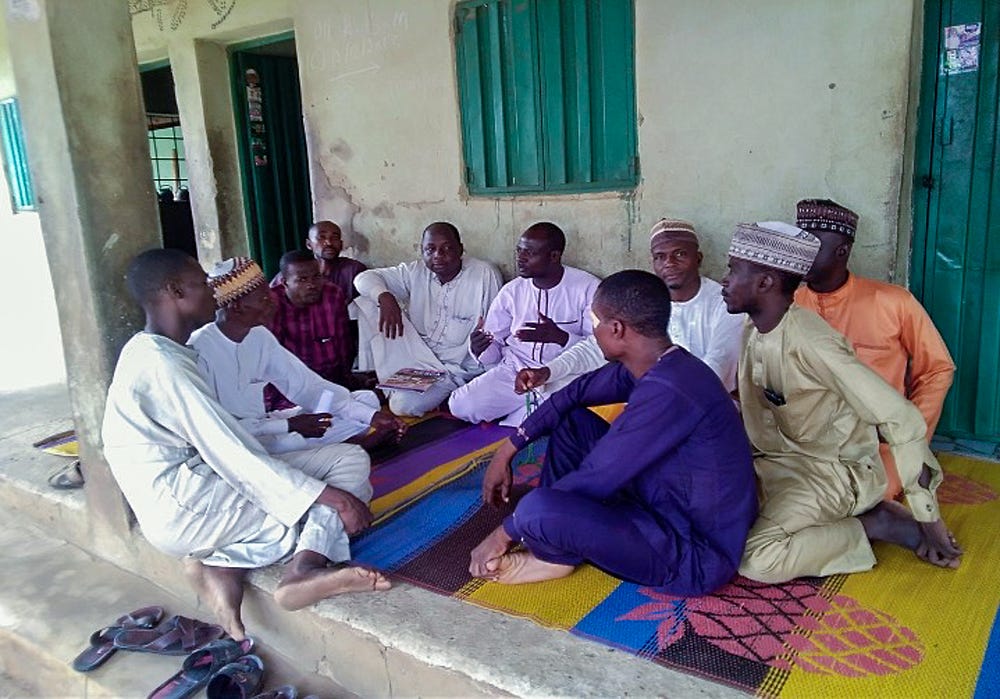
According to Bello, more women now attend antenatal classes because of the improved awareness about ANC. Even still, transportation remains a significant barrier for many of them, particularly those who live in remote locations.
She mentioned that the project uses community outreaches and house-to-house visits and leverages festivities that result in large gatherings to reach a larger audience. Women enrolled in the Sokoto State Contributory Healthcare scheme can access a wide range of services, including free delivery, to reduce the cost of care.
While both organisations generate demand for ANC services through their sensitisation efforts, Bala noted that the supply side is satisfied through a partnership with the state’s drug revolving fund (DRF) which allows for quick access to the supplements at a lower price.
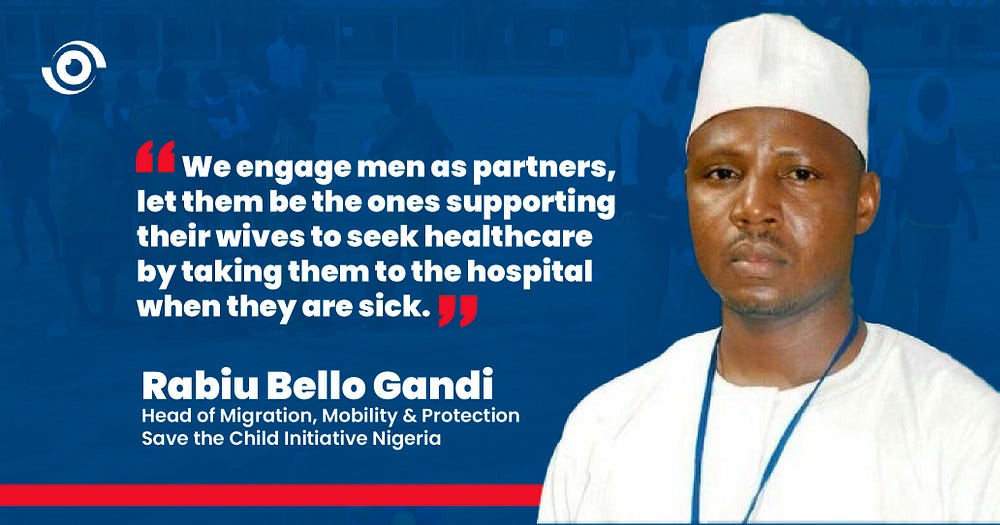
Understanding and leveraging local partnerships
Zubairu Gagi, one of the male influencers said it is impossible to determine how many people he has reached with information on topics such as women’s health, the importance of hospital visits, and the need for men to support their female partners.
“Educating men and women about women’s health and children’s nutrition has become a part of me. I take advantage of any chance I see to do so at wedding ceremonies or mosques. I have a pamphlet that I use,” Gagi said. He is happy to see the positive outcome of his efforts as the antenatal visits increase daily.
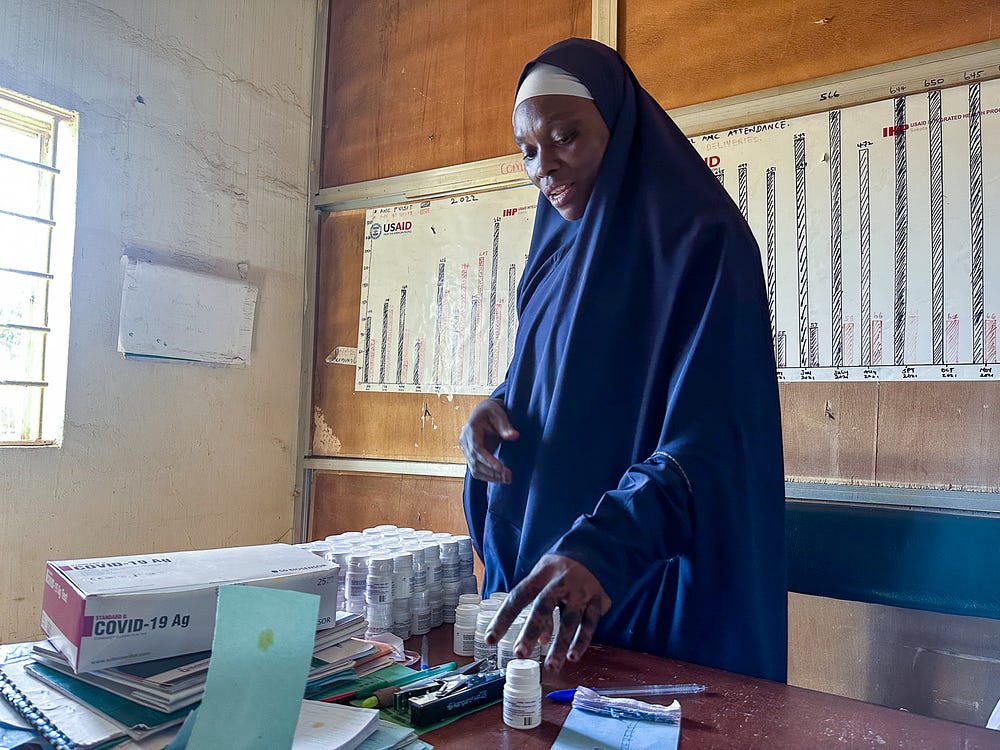
A factor that contributed to the significant success of the programme was the100 Women Group, according to Rabiu Gandi, Head of Migration, Mobility, and Protection at STCI. These are a select group of older women from the community who advocate for and teach younger women by going on house-to-house visits on any designated task assigned by health workers or Civil Society Organisations. Women in the community seek their advice on health, education, and other issues.
Traditional Birth Attendants (TBAs) also play a role in rural areas where there are no health facilities. The health workers taught the TBAs about the importance of ANC and IFA supplements. They then passed the knowledge down to the women in their villages.
Despite their critical roles, the male influencers, the 100 women group, and the TBAs have a limited reach because they cannot go beyond their communities if travel is required. This has been one of the project’s major challenges.
Regardless of these challenges, such efforts can be made more sustainable by engaging and securing the support of community members. According to Sani Umar Jabbi, the traditional ruler of Gagi, also known as Sarkin Yakin Gagi, this approach helps to ensure that the community takes ownership and continues such initiatives even after the project ends.
Antenatal clinics provide a critical platform for pregnant women and their unborn babies to access quality care and support from health facilities. It is essential to continue promoting community-based interventions that increase the availability, acceptance, and accessibility of this vital medical and nutritional care during pregnancy. However, in order to achieve the desired results, these interventions must be tailored to the local context while working with community stakeholders and gatekeepers.


